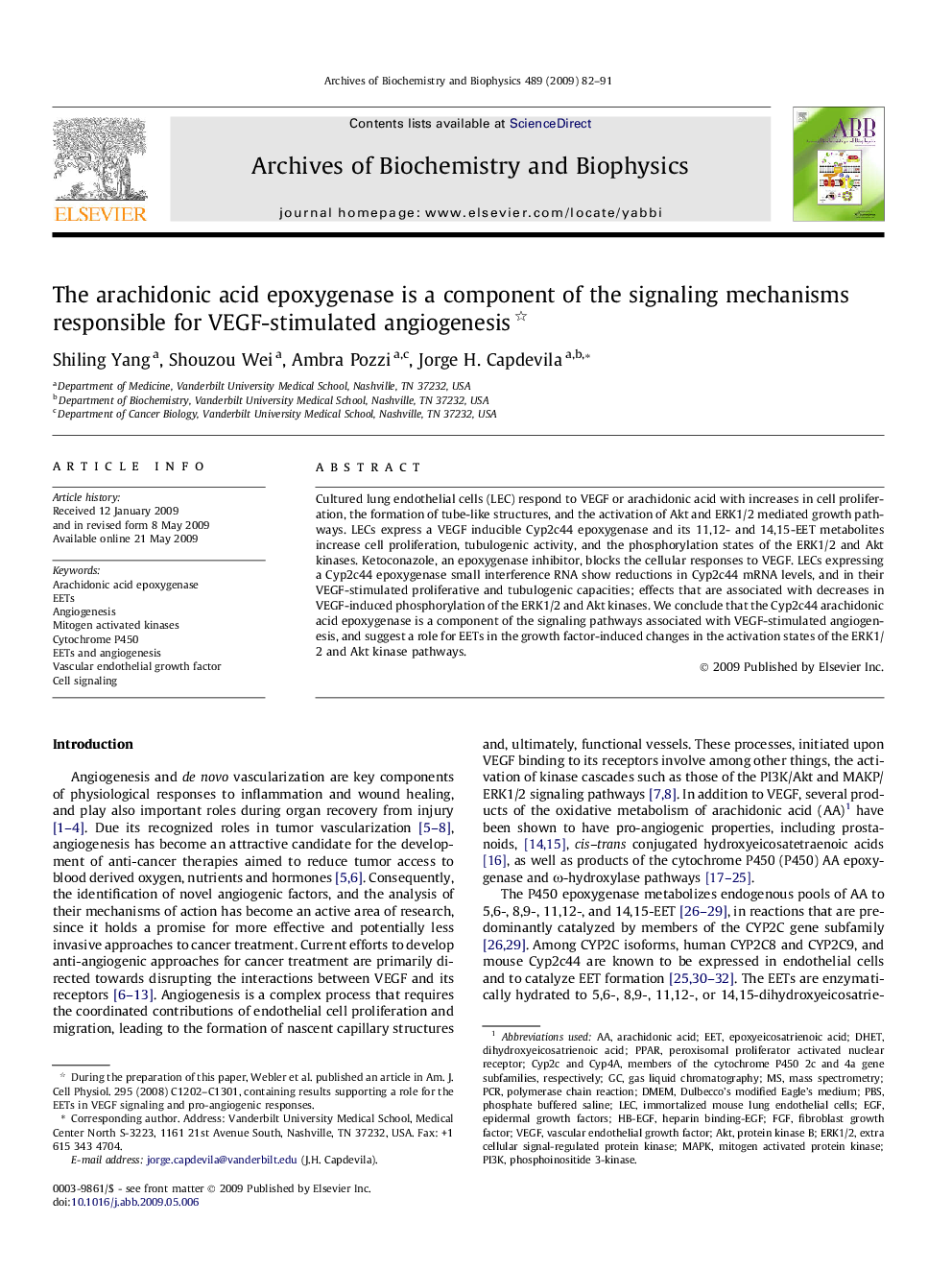| کد مقاله | کد نشریه | سال انتشار | مقاله انگلیسی | نسخه تمام متن |
|---|---|---|---|---|
| 1926286 | 1536449 | 2009 | 10 صفحه PDF | دانلود رایگان |

Cultured lung endothelial cells (LEC) respond to VEGF or arachidonic acid with increases in cell proliferation, the formation of tube-like structures, and the activation of Akt and ERK1/2 mediated growth pathways. LECs express a VEGF inducible Cyp2c44 epoxygenase and its 11,12- and 14,15-EET metabolites increase cell proliferation, tubulogenic activity, and the phosphorylation states of the ERK1/2 and Akt kinases. Ketoconazole, an epoxygenase inhibitor, blocks the cellular responses to VEGF. LECs expressing a Cyp2c44 epoxygenase small interference RNA show reductions in Cyp2c44 mRNA levels, and in their VEGF-stimulated proliferative and tubulogenic capacities; effects that are associated with decreases in VEGF-induced phosphorylation of the ERK1/2 and Akt kinases. We conclude that the Cyp2c44 arachidonic acid epoxygenase is a component of the signaling pathways associated with VEGF-stimulated angiogenesis, and suggest a role for EETs in the growth factor-induced changes in the activation states of the ERK1/2 and Akt kinase pathways.
Journal: Archives of Biochemistry and Biophysics - Volume 489, Issues 1–2, September 2009, Pages 82–91